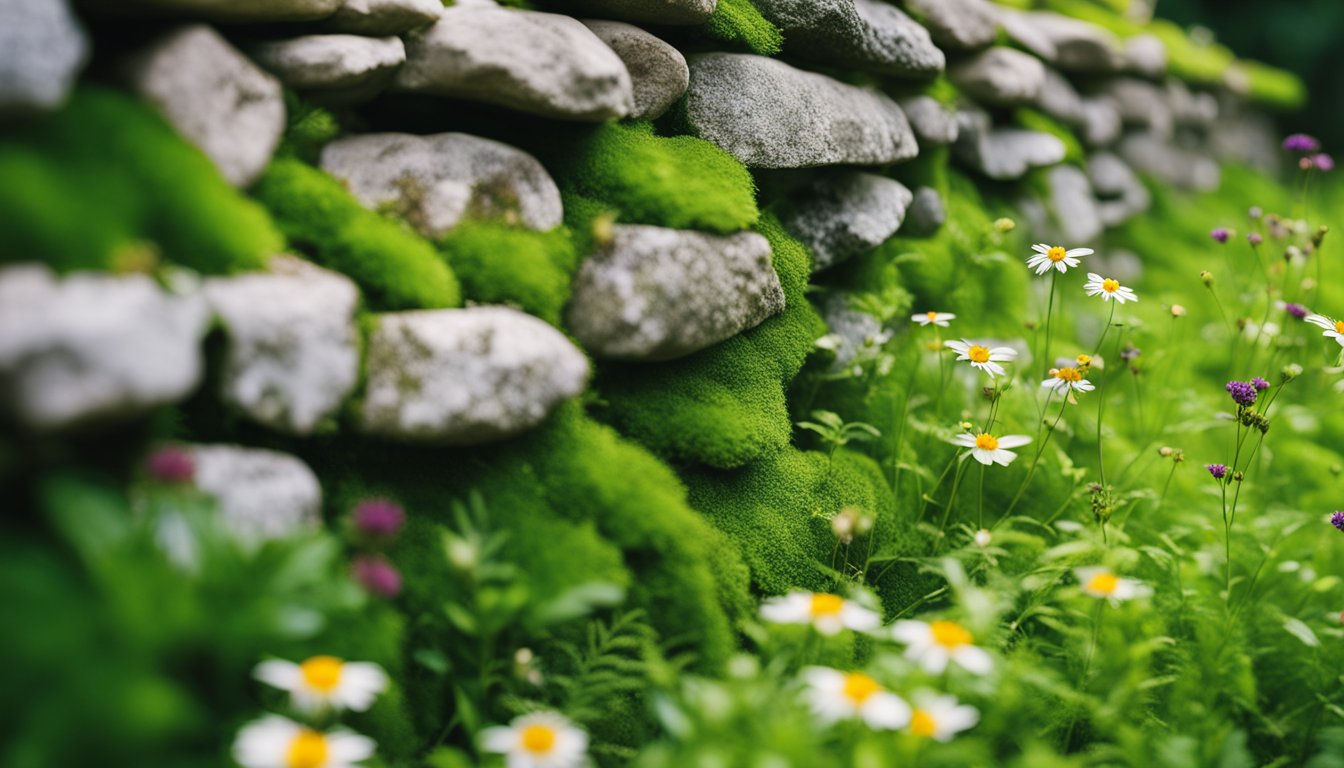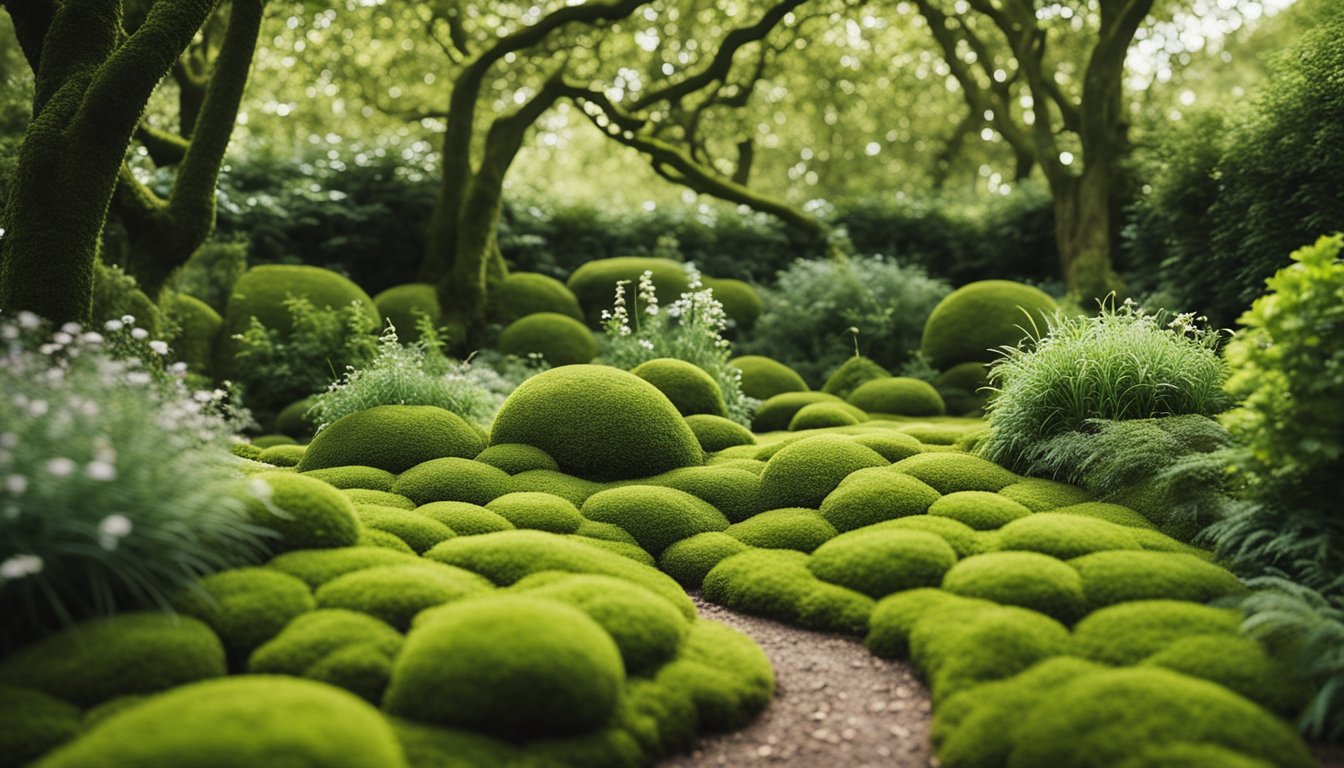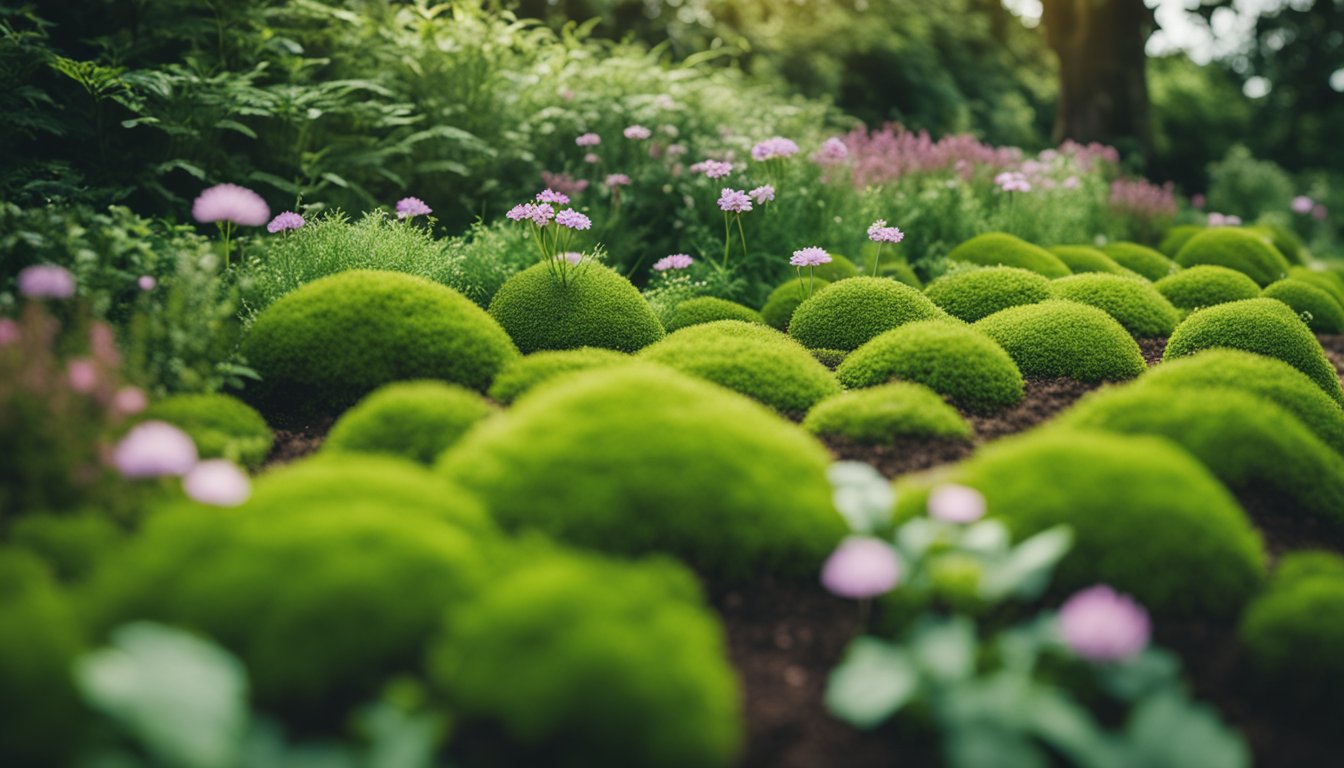Late updated: 27 Dec 2024 08:12
Written by: Emily Thornton
Benefits Of Incorporating Native UK Moss In Your Garden: Enhancing Aesthetic and Biodiversity
Gardening enthusiasts often seek unique ways to enrich their outdoor spaces, and incorporating native UK moss can be a transformative choice. Moss, with its lush green hues and soft textures, offers aesthetic appeal that few other plants can match. It creates a tranquil ambience in any garden, enhancing the overall visual charm. Moss is not only beautiful but also environmentally advantageous, playing a crucial role in enhancing air quality by absorbing carbon dioxide and emitting oxygen.

Beyond its environmental benefits, moss is practical and versatile in garden design. It acts as an excellent ground cover, reducing soil erosion while retaining moisture. Its adaptability makes it perfect for filling spaces between stepping stones or as a feature in rock gardens, lending each space a natural and understated elegance.
As we incorporate these fascinating plants into our gardens, the experience leads to not only visual improvement but also a deeper connection to our natural surroundings. The low maintenance nature of moss gardens makes them an attractive option for gardeners wanting beauty with minimal effort.
Key Takeaways
- Moss enhances air quality and provides environmental benefits.
- It serves as a beautiful and practical addition to gardens.
- Low maintenance requirements make moss ideal for many gardeners.
Environmental and Aesthetic Advantages of Moss in Garden Spaces
Incorporating native UK moss into gardens offers significant environmental and aesthetic benefits. It supports wildlife by cultivating biodiversity and enhances garden design with its unique features. These elements contribute to the ecological health and visual appeal of garden spaces.
Cultivating Biodiversity and Supporting Wildlife
Moss acts as an excellent habitat, creating a welcoming environment for various beneficial organisms. Its dense structure provides shelter for insects, which in turn support the garden's food chain. Moss can also host small amphibians such as frogs and salamanders. These creatures help control pest populations naturally, reducing the need for chemical interventions. This makes moss environmentally friendly, promoting a sustainable approach to gardening.
Our moss gardens can serve as natural filters, retaining moisture and preserving the delicate balance of soil health. By slowing down water runoff, mosses help prevent soil erosion. Their presence enhances the garden ecosystem, encouraging a harmonious coexistence between flora and fauna. This integration ensures that our garden spaces thrive as functional and biodiverse havens.
Enhancing Garden Design with Moss
The aesthetic benefits of moss in garden design are manifold. Its lush, velvety texture adds a layer of natural beauty, transforming ordinary spaces into enchanting landscapes. Moss-covered rocks and pathways introduce an element of whimsy, perfect for fairy gardens and rock gardens alike.
Our use of different types of moss in strategic spots enhances visual interest while maintaining a cohesive landscape design. Whether it's a subtle ground cover or a striking feature in a shaded area, moss effortlessly elevates garden aesthetics. Its ability to blend seamlessly with other plants makes it a versatile choice in creating tranquil and inviting outdoor spaces.
Practical Benefits of Integrating Moss into Gardens

Incorporating moss into our gardens offers significant advantages, enhancing the space's functionality and sustainability. From protecting the soil to minimising maintenance work, moss provides practical benefits that can influence the way we approach gardening.
Moss as a Natural Soil Protector
Moss acts as an excellent ground cover, playing a vital role in erosion control. By forming a dense, carpet-like layer over the soil, it helps to prevent erosion, especially in areas prone to heavy rains.
The carpet of moss stabilises the soil, reducing the impact of rainfall and preventing nutrient runoff. In doing so, this low-growing plant also retains moisture, thus maintaining a consistent level of humidity in the garden.
Additionally, moss supports a thriving ecosystem of microorganisms that contribute to soil health. By creating a favourable microclimate, moss enhances the growth of beneficial soil organisms and helps maintain the balance necessary for healthy plant life.
Low-Maintenance and Sustainable Gardening with Moss
Choosing to integrate moss in our gardening practices aligns with principles of sustainability. Moss requires minimal care once established. Unlike many other plants, it doesn't need frequent watering or fertilisation, making it an efficient choice for gardeners looking to reduce resource use.
We can cultivate moss without high maintenance costs, saving time and effort. Its ability to absorb moisture makes it ideal for humid environments, and its consistent growth pattern requires little intervention.
Opting for moss in garden design not only reduces the demand for ongoing maintenance but also contributes to a greener, more eco-friendly landscape. By embracing moss, we commit to a sustainable approach, preserving our natural resources while enhancing the beauty of our gardens.
Frequently Asked Questions

Incorporating native UK moss into garden design offers a variety of ecological and aesthetic benefits. Moss supports biodiversity, enhances soil health, and can be a sustainable landscaping alternative.
What advantages does moss offer as a garden ground cover?
Moss provides a lush, green appearance and requires minimal maintenance. It flourishes in shaded and damp areas, making it ideal for places where traditional lawn grasses struggle. Moss can reduce erosion and retains soil moisture effectively.
Can introducing moss to a garden improve soil health?
Yes, moss enhances soil health by retaining moisture, which prevents soil from drying out. This reduces the need for frequent watering and helps maintain a stable environment for both plants and beneficial organisms.
How does moss contribute to biodiversity in a garden setting?
Moss creates a microhabitat that supports a diverse range of microorganisms and insects. This supports local biodiversity, fostering a balanced and self-sustaining ecosystem that benefits both plants and wildlife.
Are there any particular benefits to using native mosses in UK gardens?
Native mosses are well-adapted to the UK's climate and soil conditions. They provide a sustainable option for gardeners seeking to maintain local biodiversity and reduce the environmental impact of their garden.
In what ways does moss support the ecosystem within a domestic garden?
Moss acts as a natural sponge, capturing and retaining moisture beneficial to garden plants and wildlife. It aids in erosion prevention and provides shelter and habitat for various organisms, enhancing overall garden health.
What should be considered when choosing moss for landscaping in sunny areas?
In sunny areas, choose moss species adapted to tolerate higher light levels. It's essential to ensure adequate moisture to prevent the moss from drying out, possibly by incorporating shaded areas or using mulch to retain water.
